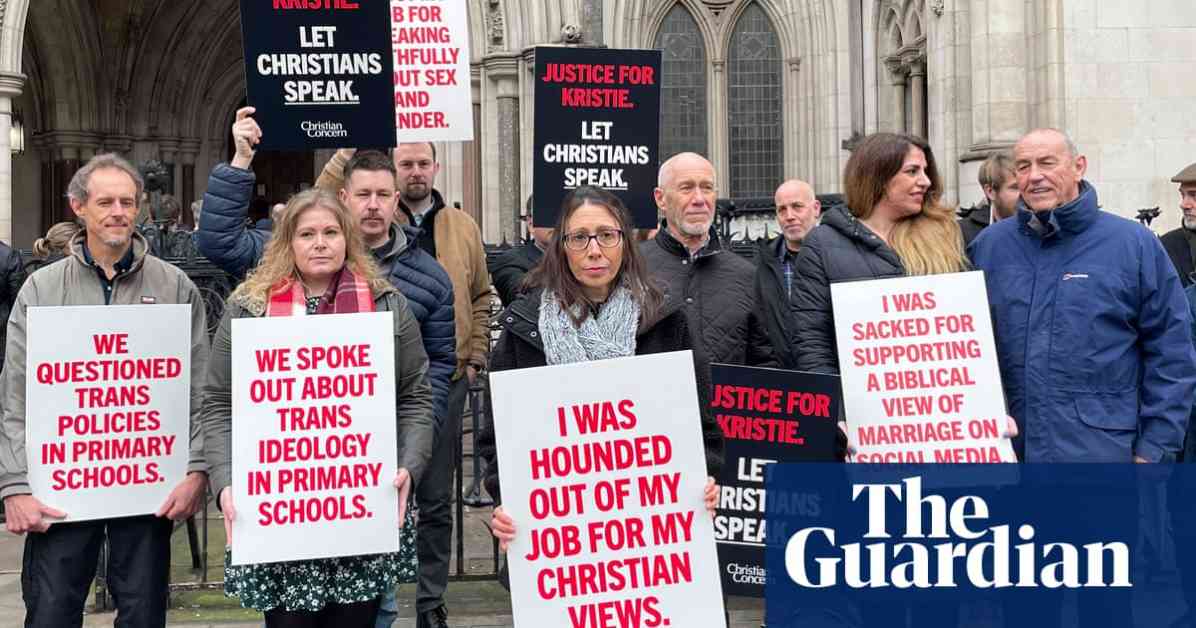In a recent court ruling, the dismissal of a school worker over LGBTQ+ posts has been deemed unlawful by the court of appeal. Kristie Higgs, a pastoral administrator and work experience manager at Farmor’s secondary school in Fairford, Gloucestershire, was terminated from her position in 2019 after sharing Facebook posts expressing concerns about lessons on LGBTQ+ relationships for primary schoolchildren. The court of appeal judges, Lord Justice Underhill, Lord Justice Bean, and Lady Justice Falk, found the decision to sack her for gross misconduct as “unlawfully discriminatory” and “disproportionate.”
Higgs, a Christian, had reposted and commented on messages criticizing the No Outsiders equalities program being taught at her son’s Church of England primary school. The posts raised objections to what she perceived as “brainwashing” children, the teaching of “gender fluidity,” and the idea that same-sex marriage was equivalent to marriage between a man and a woman, conflicting with her Christian beliefs.
The court of appeal judges ruled that dismissing an employee for expressing a religious or other protected belief, to which the employer objects, constitutes unlawful direct discrimination under the Equality Act. Despite the school’s argument that Higgs’s posts were intemperate and could damage its reputation, the court found that the dismissal was unjustified as she had not exhibited discriminatory behavior towards pupils at work.
Higgs’s case had gone through several legal stages, starting with an employment tribunal’s initial ruling in 2020 that her dismissal was lawful due to her protected religious beliefs. However, this decision was overturned by an employment appeal tribunal (EAT) in 2023, leading to the recent court of appeal judgment that declared the decision to remit the case discriminatory.
In response to the ruling, Higgs expressed her relief, stating, “Expressing biblical Christian teaching on gender and sexuality may appear to be offensive to those who hold the opposite views, but as today’s judgment signals, Christians have a right to express their beliefs publicly.” On the other hand, Sean Jones KC, acting for Farmor’s, argued that Higgs was dismissed not for manifesting her beliefs but because the manner in which she did so could be interpreted as expressing homophobic or transphobic views.
The court’s 57-page ruling emphasized that Higgs’s posts were not grossly offensive but rather a series of derogatory remarks. Lord Justice Underhill stated that he did not believe dismissal was a proportionate response to her conduct. While the court’s decision was based on the proportionality of her dismissal, it was not an endorsement of the beliefs she expressed.
In response to the ruling, a spokesperson for Stonewall reiterated the importance of upholding inclusive policies in schools and institutions, stressing the need to create non-discriminatory environments for both students and staff. The court of appeal’s judgment serves as a reminder of the ongoing debate surrounding freedom of speech, religious beliefs, and the rights of individuals to express their views in a diverse society.



